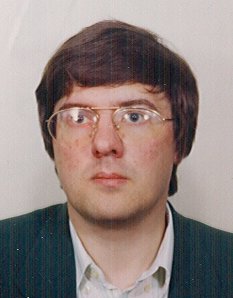Walter Daelemans, born in Antwerp, Belgium, in 1960. Ph.D. from the Katholieke Universiteit Leuven. Researcher in Computational Linguistics and Artificial Intelligence at Tilburg University.
Fellow (1 September 1995 – 31 January 1996)
When the possibility of a NIAS Fellowship came up early 1994, it was my intention to spend the period writing a book on the results of my research on memory-based reasoning approaches to natural language processing and acquisition. However, I was invited to submit a proposal for a large research programme to NWO. Most of my time at NIAS was spent on designing a research programme and writing a proposal for this prestigious grant. I received excellent moral and inspirational support from the theme group on “Human Syntactic Processing” when writing this proposal. As the proposal would be judged by the Humanities Committee of NWO (consisting of theologians, historians, musicologists, etc. rather than computer scientists or psychologists), I also benefitted a lot from discussions with the fellows outside the “Human Syntactic Processing” theme group.
Although the NWO committee decided not to sponsor the proposed research programme, another NWO committee (TSL) and the Faculty of Language and Literature in Tilburg decided to invest considerable means in the proposed research programme (among others one post-doctoral and four Ph.D. students), so that I will yet be able to realise the largest part of the proposed research.
Apart from writing the proposal, I also managed to get a considerable amount of research done (in collaboration with colleagues and students), and to report on it. More specifically, we implemented and tested our proposals for a memory-based approach to morphosyntactic disambiguation, morphological analysis and morphological generation, and started work on structural ambiguity resolution within the same framework. I also further worked out proposals about a memory-based operationalisation of the nature-nurture discussion for language acquisition. This resulted in three papers and one article forthcoming in 1996 or early 1997.
